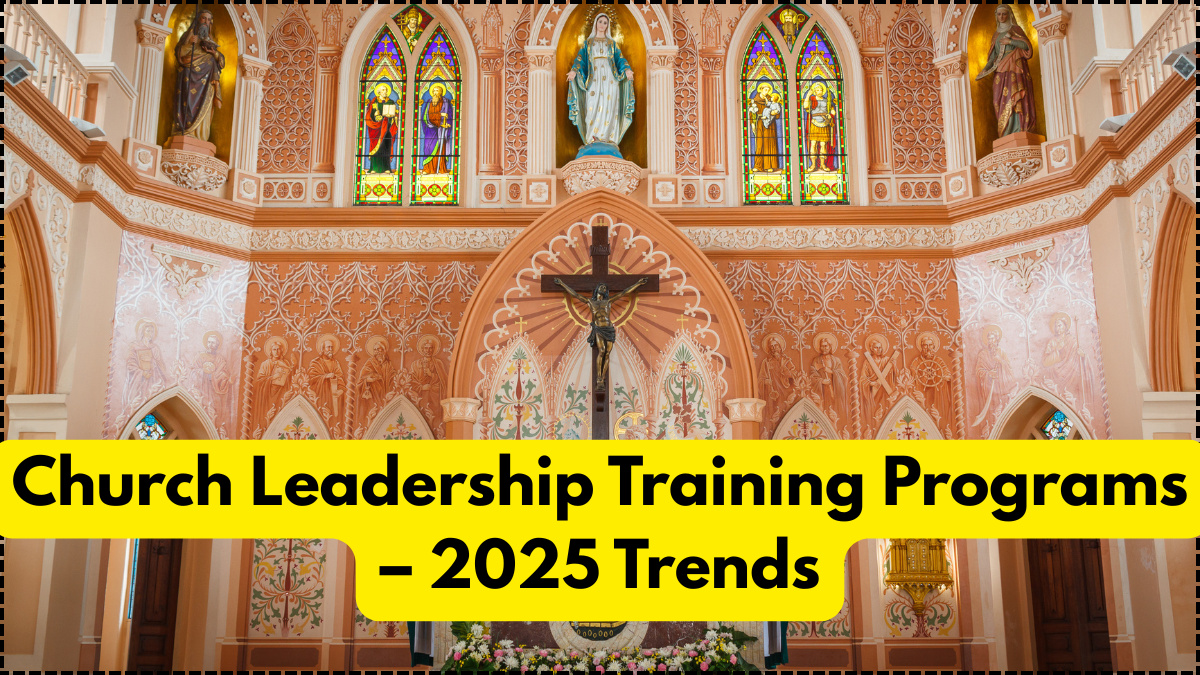Faith communities rely on strong leadership, and the Church Leadership Training 2025 programs are reshaping how pastors, ministry leaders, and volunteers prepare for service. Churches are increasingly investing in structured learning modules, mentoring systems, and hands-on workshops to develop leaders who can meet the evolving needs of their congregations.
At the core of this evolution is a focus on community building—teaching leaders not just to manage church operations, but to inspire connection, outreach, and service. The result is a new generation of leaders who can guide their congregations with wisdom and relevance.

Why Leadership Training Matters in 2025
The Church Leadership Training 2025 landscape reflects a major shift in priorities. Churches are no longer looking only for administrative skills—they’re emphasizing emotional intelligence, cultural understanding, and the ability to engage with diverse communities.
By focusing on community building, these programs ensure leaders can create spaces where people feel welcomed, supported, and encouraged in their faith journeys. This training also equips leaders to handle modern challenges like digital ministry and social outreach.
Key Features of Modern Church Leadership Training
The Church Leadership Training 2025 programs stand out for their innovative approach to preparing leaders. Notable features include:
-
Courses on theology, counseling, and digital ministry
-
Interactive workshops on community building and outreach strategies
-
Mentorship programs pairing new leaders with experienced pastors
-
Sessions on managing church finances and resources ethically
-
Focus on inclusivity, cultural awareness, and communication skills
These elements combine to create well-rounded leaders ready to serve their communities effectively.
Church Leadership Training – 2025 Snapshot
Here’s a table outlining the main areas of Church Leadership Training 2025 and how community building is integrated into each program.
| Training Module | Focus Area | How It Helps Leaders |
|---|---|---|
| Theology & Ministry | Core faith education | Strengthens spiritual foundation |
| Community Engagement | Outreach and service tactics | Enhances community building |
| Digital Ministry | Using tech for outreach | Reaches broader audiences |
| Leadership Ethics | Responsible church management | Builds trust in congregations |
| Counseling Skills | Guidance and emotional support | Helps leaders support members |
How Churches and Members Benefit
The Church Leadership Training 2025 programs benefit not just those in leadership, but every member of the congregation. Better-trained leaders mean stronger sermons, more effective outreach, and healthier church environments.
When leaders understand the principles of community building, they can create initiatives that bring people together, from neighborhood service projects to youth mentorship programs. These efforts foster unity and growth both inside and outside the church walls.
Conclusion
The Church Leadership Training 2025 trend is about more than teaching management—it’s about shaping leaders who can inspire, guide, and connect. By emphasizing community building and modern ministry skills, these programs are ensuring that churches remain strong, relevant, and welcoming in the years ahead.
FAQs
What is Church Leadership Training 2025?
It’s a modern approach to training pastors and ministry leaders with skills in theology, outreach, and management.
Why is community building part of leadership training?
Community building teaches leaders how to connect people, create belonging, and foster spiritual growth.
Who can attend Church Leadership Training 2025 programs?
Programs are open to pastors, aspiring leaders, volunteers, and anyone interested in church leadership roles.
Are these trainings available online?
Yes, many Church Leadership Training 2025 programs now offer hybrid or fully online options.
How do churches benefit from investing in leadership training?
Trained leaders can manage resources responsibly, inspire congregations, and strengthen community building efforts.
Click here to know more